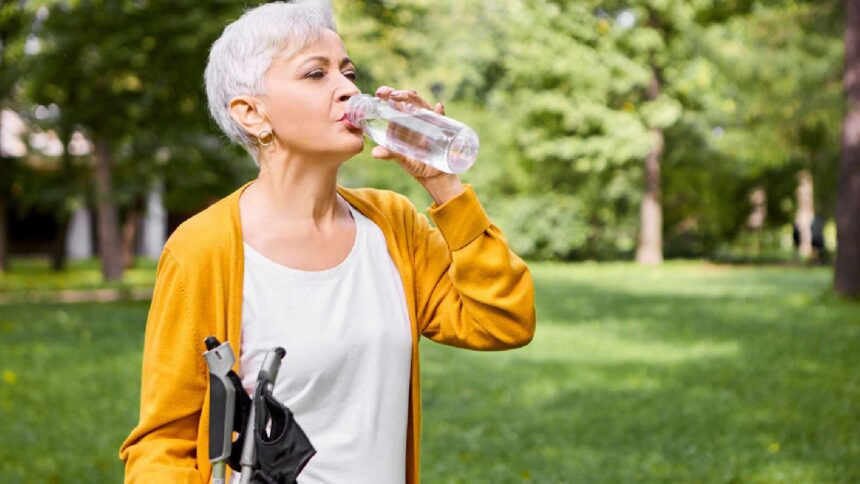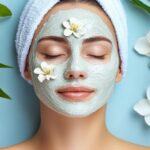Anybody can get dehydrated, however the aged could also be extra inclined to dehydration. Discover out the the widespread causes of dehydration in older adults.
Dehydration within the scorching summer season might be an age-agnostic well being downside, however there’s a increased threat of dehydration in older adults attributable to pure modifications within the physique as they age. Whether or not you’re on the youthful or older facet, ingesting about eight glasses of water in a day is essential to assist in regulating the physique temperature, lubricating joints and sustaining total well being. But when ample water is just not consumed, there might be issues. Know the causes of dehydration in older adults and find out how to assist them.
What’s dehydration?
Dehydration happens when the physique loses extra fluids than it takes in, resulting in an inadequate quantity of water and different fluids crucial for regular bodily features, says inner drugs professional Dr Shuchin Bajaj. Dehydration may result from not ingesting sufficient water, dropping an excessive amount of water, or a mixture of each.

What are the signs of dehydration?
Listed here are a number of the signs of dehydration:
- Thirst
- Dry mouth and dry pores and skin
- Decreased urine output or dark-coloured urine
- Fatigue and weak spot
- Dizziness or lightheadedness
- Confusion or cognitive impairment
- Fast coronary heart fee
- Low blood stress
- Sunken eyes
Why is dehydration extra widespread in aged?
When the temperature is absolutely excessive, it will increase your threat of getting dehydrated. It’s, nevertheless, price noting, that’s not simply the season or the temperature outdoors that may trigger dehydration. Older adults are 20 to 30 p.c extra susceptible to be dehydrated attributable to impaired thirst mechanism, immobility, diabetes, and kidney illness, in response to a analysis printed in StatPearls in 2022.
Listed here are some elements:
1. Decreased thirst sensation
As individuals age, their sense of thirst diminishes. This implies they won’t really feel thirsty even when their physique wants fluids for correct functioning of the physique. This may result in insufficient fluid consumption.
2. Diminished kidney operate
Ageing can have an effect on kidney operate, making the organs much less environment friendly at conserving water. This implies individuals, particularly aged 60 and above, might lose extra water whereas peeing, says the professional.
3. Persistent sicknesses
Many older adults have persistent sicknesses similar to diabetes, kidney illness, or coronary heart illness. These well being circumstances can have an effect on fluid stability and enhance the chance of dehydration.
4. Medicines
Older adults usually take medicines that may trigger elevated urination. These embody:
- Diuretics, usually prescribed for circumstances like hypertension and coronary heart failure, enhance urine manufacturing, resulting in fluid loss.
- Used to deal with constipation, laxatives can result in extreme fluid loss by way of the stool.
- Antihypertensives, that are blood stress medicines, may cause elevated urination.
- Sure antidepressants, similar to tricyclic antidepressants, can have diuretic results, resulting in decreased fluid consumption.
- Antipsychotics may cause dry mouth, making it uncomfortable to drink fluids recurrently.
5. Mobility points
Bodily limitations and mobility points could make it tough for older adults to entry fluids recurrently. They could even have problem attending to the lavatory, which might make them restrict fluid consumption to keep away from frequent journeys to the washroom.

The right way to deal with dehydration in older adults?
Remedy of dehydration in older adults includes the next steps:
1. Enhance fluid consumption
Encourage them to eat extra water. If water is simply too plain for them, supply them different hydrating fluids like natural teas, vegetable or rooster broths, and oral rehydration options, says the professional.
2. Monitor and regulate medicines
Older adults could also be having prescribed medicines for numerous well being circumstances. Evaluate these medicines with a physician to regulate dosages or swap to alternate options which have a decrease threat of inflicting dehydration.
3. Use hydrating meals
Incorporate meals with excessive water content material, similar to fruits (watermelon, and oranges) and greens (cucumbers, and lettuce), into the weight loss program. Additionally, put much less salt of their meals. In the event that they eat a high-sodium weight loss program with out growing their fluid consumption, they are often at a threat of being dehydrated.
4. Intravenous fluids
If these steps don’t work, you have to attain out to a physician. In extreme circumstances, physician might administer intravenous fluids to rapidly replenish fluid ranges, says Dr Bajaj.
The right way to stop dehydration in older adults?
Stopping dehydration in older adults might be managed by way of the next methods:
- Set reminders or schedules for ingesting fluids all through the day, even when they don’t really feel thirsty.
- Give them extra choices in hydrating drinks like water, milk, and low-sugar juices to make ingesting wholesome drinks extra interesting.
- Guarantee easy accessibility to fluids by conserving water inside their attain.
- Encourage a weight loss program wealthy in hydrating meals.
Dehydration can have an effect on anyone, however it could impression the seniors extra. Allow them to drink wholesome drinks extra usually and eat hydrating meals to stop dehydration in older adults.












